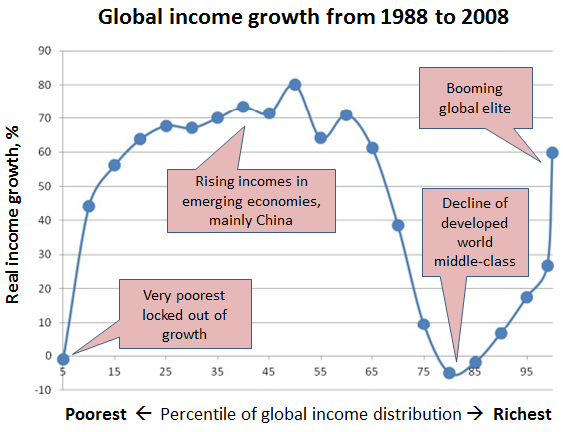Factory workers assembling the Moto X will make as little as $9-an-hour, if the help wanted ads are to be believed.
Source: Motorola’s New Smartphone: Made in the U.S.A., but Not for Much Pay – The Atlantic
Is $17/hour a “middle-class” wage? What range *is* a “middle class” wage?
Plenty of smart people have taken a stab at that question. In the past few years, the “middle class” income range has been described as between $32,900 and $64,000 a year (a Pew Charitable Trusts study), between $50,800 and $122,000 (a U.S. Department of Commerce study), and between $20,600 and $102,000 (the U.S. Census Bureau’s middle 60% of incomes).
Psychologist Ken Eisold, a contributor to Psychology Today, said, though, that the way people describe their social status has more to do with what’s going on in their heads than their wallets.
Source: Middle class a matter of income, attitude | USA Today
In many American communities, families working in low-wage jobs make insufficient income to live locally given the local cost of living.
Recently, in a number of high-cost communities, community organizers and citizens have successfully argued that the prevailing wage offered by the public sector and key businesses should reflect a wage rate required to meet minimum standards of living.
Therefore we have developed a living wage calculator to estimate the cost of living in your community or region. The calculator lists typical expenses, the living wage and typical wages for the selected location.
Source: Living Wage Calculator
